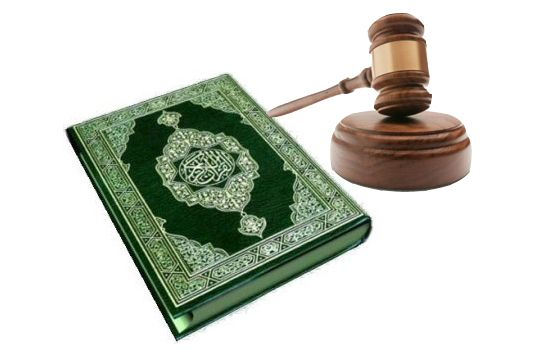Facts of the Case
A and B, both Christians, solemnized their marriage under the Indian Christian Marriage Act, 1872, which governs the procedure and formalities of marriage between Christians in India. After living together for some time, differences arose between them, leading to separation. They have now lived separately for two years and have mutually agreed to dissolve their marriage by mutual consent. The question arises whether the Christian Marriage Act, 1872 allows dissolution of marriage by mutual consent, or if any other law applies to Christian couples seeking divorce in India.
Issues in the Case
- Whether the Christian Marriage Act, 1872 provides for divorce by mutual consent?
- If not, which law governs the divorce proceedings for Christian couples in India?
- What are the legal requirements and conditions for obtaining a divorce by mutual consent under Indian law?
- Whether a two-year separation is sufficient ground for granting divorce by mutual consent in the case of a Christian couple?
Legal Principles Covered to Support Case Proceedings and Judgements
- Applicable Law:
The Indian Christian Marriage Act, 1872 deals only with the solemnization and registration of Christian marriages. It does not contain provisions for divorce or dissolution of marriage. Therefore, for divorce matters, the applicable statute is the Indian Divorce Act, 1869 (as amended by the Marriage Laws (Amendment) Act, 2001). - Divorce by Mutual Consent – Section 10A, Indian Divorce Act, 1869:
- Section 10A(1) of the Indian Divorce Act, 1869 (inserted by the Amendment Act, 2001) provides that: “Subject to the provisions of this Act, a petition for dissolution of marriage may be presented to the District Court by both the parties to a marriage together, on the ground that they have been living separately for a period of two years or more, that they have not been able to live together, and that they have mutually agreed that the marriage should be dissolved.”
- Thus, mutual consent divorce is legally recognized for Christians under this Act.
- Procedure:
- A joint petition must be filed before the District Court by both parties.
- The Court records statements of both spouses and ensures that the consent is free and not obtained by force, fraud, or undue influence.
- After a six-month cooling-off period (which may be waived by the Court), a decree of divorce can be granted.
- Judicial Interpretation:
- Ammini E.J. v. Union of India (1995 AIR 2001 Ker 81) — The Kerala High Court emphasized the need for recognizing mutual consent divorce among Christians to ensure fairness and equality.
- After the 2001 Amendment, this right is now clearly available under Section 10A.
- Key Difference from Hindu Law:
- Under the Hindu Marriage Act, 1955, Section 13B allows divorce by mutual consent after one year of separation, whereas for Christians, the period is two years as per the Indian Divorce Act, 1869.
Possible Judgement
In this case, the Christian Marriage Act, 1872 does not provide for divorce by mutual consent, as it only governs the solemnization of Christian marriages. The Indian Divorce Act, 1869, as amended by the Marriage Laws (Amendment) Act, 2001, is the governing law for dissolution of Christian marriages.
Under Section 10A of the Indian Divorce Act, 1869, A and B are legally entitled to seek divorce by mutual consent, provided:
- They have been living separately for at least two years,
- They have not been able to live together, and
- They mutually agree that the marriage should be dissolved.
Since these conditions are satisfied in the given facts, the Court would likely grant a decree of divorce by mutual consent after fulfilling procedural formalities such as verification of free consent and the statutory waiting period.
Judicial Outcome:
- The divorce by mutual consent between A and B is legally valid under Section 10A of the Indian Divorce Act, 1869.
- The marriage, though solemnized under the Christian Marriage Act, 1872, can only be dissolved through the provisions of the Indian Divorce Act, 1869.
Mnemonic to Remember — “2C LAW: Christian Consent for 2 Years”
- 2 – Must live separately for 2 years.
- C – Consent of both spouses required.
- L – Governed by Law: Indian Divorce Act, 1869.
- A – Amendment Act (2001) introduced Section 10A.
- W – Written joint petition before District Court.
Summary:
Even though the Christian Marriage Act, 1872 regulates the solemnization of Christian marriages, divorce by mutual consent is governed by Section 10A of the Indian Divorce Act, 1869 (as amended in 2001). Since A and B have been living separately for two years and mutually agree to dissolve their marriage, they are entitled to obtain a valid decree of divorce by mutual consent from the competent District Court.
About lawgnan:
Discover everything you need to know about divorce by mutual consent for Christians in India at Lawgnan.in. Understand how Section 10A of the Indian Divorce Act, 1869, allows Christian spouses to dissolve their marriage legally after two years of separation through a joint petition. Learn the eligibility, procedure, and key case laws that guide mutual consent divorces, including Ammini E.J. v. Union of India. Lawgnan provides detailed insights and expert explanations to help Christian couples navigate the legal framework of mutual consent divorce with clarity, fairness, and confidence.




